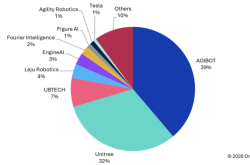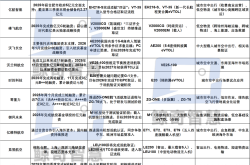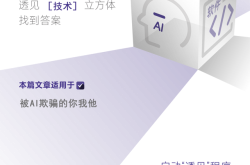
Image | Screenshot from the movie "Captain America: Civil War"
© Original by Self-Quadrant
Author: Cheng Xin
Editor: Luo Ji
The price war among large models is no longer news.
Since OpenAI released GPT-4o, reducing the API price by 50% and announcing free access for ordinary users, it marked the transition of competition in large models from performance to cost.
The domestic price war started with startups, initially with DeepSeek announcing price cuts, followed by other startups like Zhipu AI and Mianbi Zhineng. Then, Volcano Engine escalated the war from startups to major players, leading to a series of chain reactions.
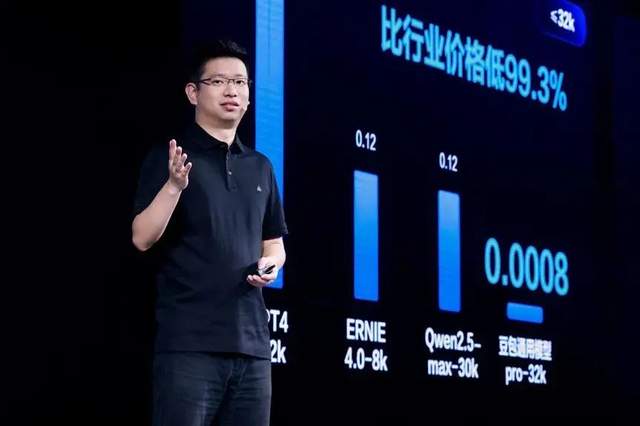
▲ Image Source: Volcano Engine Official
On May 21, Alibaba Cloud was the first to respond, and Baidu Intelligent Cloud directly upped the ante by announcing two lightweight main models as free, followed by Iflytek. Even Tencent, which has been low-key in the industry, also offered significant discounts.
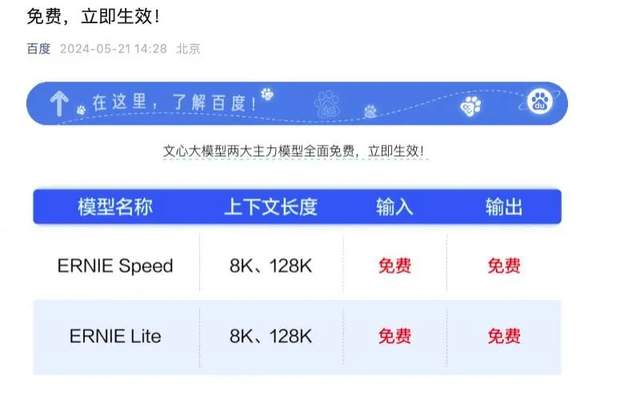
Within a short week, the price competition escalated from a local conflict to a full-scale war, with large models going wild.
However, among this chaos, the most typical and representative may be Alibaba Cloud and Volcano Engine, as their price war represents the two most typical modes of competition among current large model enterprises and cloud computing platforms.
I. Volcano Engine's "Surprise Attack" on Alibaba Cloud
To some extent, the price war among large models is inevitable. But there is a very dramatic characteristic in this domestic price war.
Namely, among the major players, it was not Alibaba Cloud, which has always held the banner of "low price," that took the lead in price cuts, but Volcano Engine, under ByteDance.
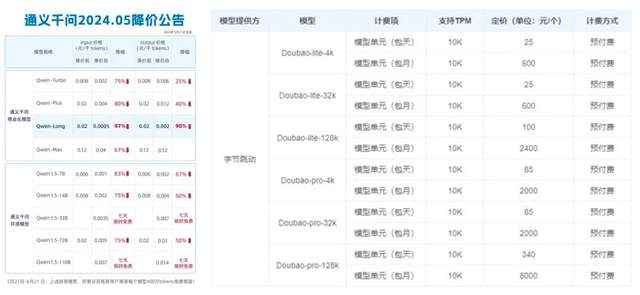
▲ Image Source: Alibaba Cloud, Volcano Engine Official
The competition between Volcano Engine and Alibaba Cloud is like an established master, whose most prized move was unexpectedly preempted by a young man, which is undoubtedly surprising.
But this actually had early signs, and we can find some clues from ByteDance and Alibaba's past competition.
From the perspective of Alibaba and ByteDance, this is actually ByteDance's second "surprise attack" on Alibaba, as the first was last year when Douyin E-commerce suddenly emerged to attack Taobao.
In 2023, Douyin E-commerce's annual GMV quickly exceeded 2 trillion yuan, proving to the entire e-commerce industry that it is not just a content creator but also a traffic black hole. As long as Douyin can capture consumers' attention, it can leverage B-end concessions.
In this way, Douyin E-commerce grew under Taobao's "nose," challenging Taobao's traditional status as the leader of e-commerce in an almost ironic manner.
Now, Douyin is applying this "secret weapon" to the cloud market.
When we extend the timeline and sort out ByteDance's AI trajectory over the past year, we will find that "not a single move is redundant."
For example, "Self-Quadrant" mentioned in "Decoding Kimi: How Did the Top Large Model Application Come to Be?" that ByteDance's Doubao and Kimi apps have launched marketing campaigns in the C-end market. Now, Volcano Engine has taken the lead in initiating a price war targeting B-end and developers.
It seems like marketing wars and price wars are separate attacks on 2C and 2B, but essentially, they are two steps in ByteDance's overall strategy.
According to "Self-Quadrant," the product strategy leader for Doubao and other large model application products within ByteDance is Zhu Jun, a vice president who has previously overseen the early product planning for Musical.ly and TikTok. Volcano Engine is primarily responsible for Doubao's 2B services, integrating with various industries, led by Tan Dai.
In essence, Doubao's 2C marketing and deployment and Volcano Engine's 2B strategy are two separate business lines.
However, one issue is that when traditional industries in the 2B market make innovative decisions, they often need a reference or sample. For completely unfamiliar fields, they prefer "predictability" over complete unknown.
A top client of Volcano Engine told "Self-Quadrant": "Leaders don't understand technology, but they may use Doubao. When we propose a project, we say we'll build an internal Doubao, and leaders will immediately understand."
For 2B customers, innovation is minor, but they cannot afford to make mistakes.
Since Doubao has established a certain user mindset through marketing in the C-end market, and because Doubao's assistant model is the Yunque voice large model, Doubao stands out among various large model products. Users hardly need to type, and they can communicate with Doubao through voice, along with Agent calling features.
This function satisfies the needs of many elderly people. Since last year, we have found that many elderly people around us have started to use Doubao. Some fathers take Doubao to buy groceries, taking pictures of unfamiliar vegetables and asking Doubao; some doctoral supervisors revise students' theses with Doubao; some grandfathers use Doubao to take care of their grandchildren...
An industry insider close to Doubao revealed to "Self-Quadrant": "When Grace was renamed Doubao, the product team almost immediately targeted the elderly demographic and grounded approach, conducting targeted marketing and penetration, especially through targeted pushes on Douyin."
A platform with traffic can indeed "reap multiple benefits from a single fish," especially when the voice of most companies is currently in the hands of this demographic.
This may seem like a roundabout strategy, but in fact, perhaps from the moment ByteDance renamed its large model product from Grace to Doubao, when outsiders laughed at its "earthiness," the first move in this chess game had already been made.
Creating product differentiation through technological excellence is the first step; precisely positioning the target audience based on product differentiation is the second step.
Using Douyin's large traffic platform for precise deployment to cultivate user mindset and product recognition, while participating in a round of marketing wars, is the third step.
With a benchmark product in place, 2C and 2B start to have a connection point. Using "Doubao" as a template to build a company's own Doubao was once Volcano Engine's core sales pitch.
This sales strategy is consistent with ByteDance's 2B style, which is to externalize its strengths. Feishu is an externalization of ByteDance's internal management processes, and Volcano Engine was born from the externalization of ByteDance's recommendation algorithm capabilities.
Price cuts are a spark to fully ignite awareness in the 2B market, but they are not the sole purpose. Tan Dai continuously emphasizes that the premise for price cuts is that "our large model capabilities are ready." Perhaps what Volcano Engine wants to convey externally is not just low prices, but that its model capabilities are already ready.
But we speculate that price cuts and initiating a price war are only a stage in the development of large models, and it is not ByteDance's or even Volcano Engine's direct purpose. As for what his purpose is, Tan Dai said it clearly: "Large models have not yet truly landed on a large scale, and as long as prices come down, there are still opportunities. The most important thing for Volcano Engine is how to do a good job of best practices and expand the market."
Thereby achieving a弯道超车 for the fourth cloud. Large models are a new opportunity for cloud vendors, and it is clear that Volcano Engine is firmly grasping this new opportunity. Currently, it has gained the opportunity to compete on the same playing field as Alibaba Cloud.
However, to do well in the entire market, Volcano Engine is still too "green." In Alibaba Cloud's advantageous battlefield, Volcano Engine's mere "trickery" will no longer work, and it needs to show some real strength in the future.
II. Technology Cost Reduction vs. Scale Cost Reduction
To paraphrase a quote from Musk: No one doesn't want to use large models, as long as they are cheap enough.
Price reductions for large models are inevitable, but no one expected it to come so soon.
Even more surprisingly, in the era of large models, Alibaba was the first company to be impacted by ByteDance.
Apart from its core e-commerce business, Alibaba Cloud is indeed the "second in command." Over the past few years, Alibaba Cloud has had an absolute first-mover advantage in the cloud market, whether it is the scale of IaaS, 2B service experience, or the soundness of its ecosystem, all of which make Volcano Engine, the "young upstart," seem insignificant in comparison.
Last April, Alibaba Cloud led a large-scale price reduction trend in the cloud market. A year later, when we look back, we will find that the price reduction at that time was not a decision based on market competition but rather a cost reduction brought about by scale, a benign price reduction after cost reduction.
Cloud computing has developed for nearly 20 years, and most IDC infrastructure has been basically improved, reaching a turning point for cost dilution. From its establishment in 2009 to 2024, with the improvement of infrastructure and the overall performance of the platform, price reductions have become an inevitable trend and a sign that cloud vendors have passed through the growth stage and entered maturity.
In this round of comprehensive price reductions for Tongyi Qianwen, Alibaba has continuously mentioned the universal benefits of computing power brought about by the scale of public clouds. Liu Weiguang from Alibaba Cloud's Public Cloud Business Unit specifically pointed out: "Public cloud technology kilometers and scale effects will bring significant cost and performance advantages."
In the final analysis, Alibaba Cloud's price reductions are still caused by scale-driven cost reductions, a privilege reserved for those who are old enough, long enough, and large enough.
In contrast, Volcano Engine is too young. It first provided external services in 2019, and comparing its "thickness" with Alibaba Cloud is almost a dead end.
But that doesn't mean Volcano Engine can't bring costs "down."
Let's回顾 the era of mobile internet when Douyin faced its greatest challenges: user habits? Market penetration? Or recommendation algorithm difficulties?
In fact, none of these. At that time, the biggest problem facing Douyin's mass adoption was that "traffic was too expensive."
During the transition from 3G to 4G, when everyone only had 20M or 30M of data per month, no one was willing to spend hundreds of yuan a month to scroll through Douyin.
So from then on, Douyin's algorithm team explored how to use less traffic resources to watch videos. This algorithmic logic is essentially the same as using limited computing power to infer more results today.
Therefore, the core of Alibaba Tongyi's price reduction is scale, while Volcano Engine relies on technology for cost reduction.
Tan Dai has publicly stated: "The reason we are reducing prices today is because we can do it. We have many technical optimization methods that can reduce its cost while improving its effectiveness. For example, we optimize and adjust the model structure, use distributed inference instead of standalone inference in engineering, and through a mixed scheduling system, we process 120 billion Tokens of text daily, generate 30 million images, strengthen the use of computing power, and greatly reduce costs."
In addition to the Doubao large model, DeepSeek, known as the "Pinduoduo of the large model world," has also reduced computing costs to the lowest level through technical means, still achieving a 50% profit margin at industry-floor prices. At the same time, startups like Luchen Technology are also targeting the route of computing power optimization, maximizing the development degree of a single card through algorithmic changes and minimizing the loss of multiple cards.
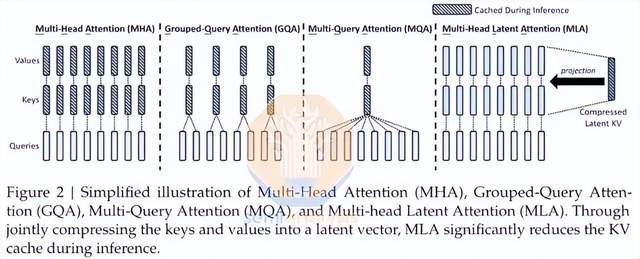
▲ Image Source: Optimization Architecture in DeepSeek's Paper
At this stage, scale cost reduction and technology cost reduction are two intertwined paths, and both Alibaba Cloud and Volcano Engine have chosen paths that suit them.
This "surprise attack" started with ByteDance's aggressive move in the era of large models. But as mentioned above, surprise attacks can catch people off guard, but they do not guarantee victory.
As Volcano Engine prepares to engage in a face-to-face battle with Alibaba in its territory, there are still many tough battles ahead.

